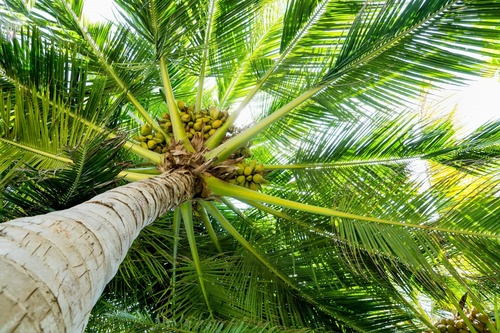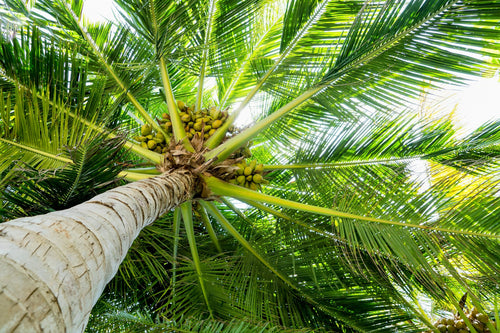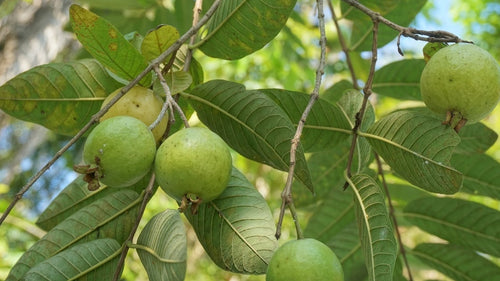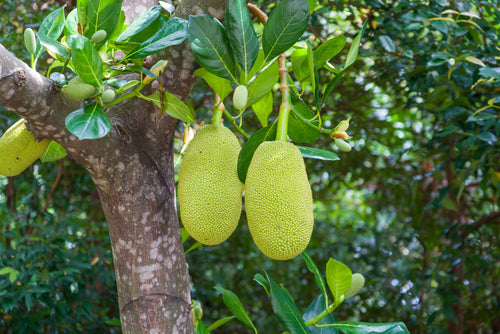Sustaining the Environment: JK Paper's Tribute to Speakers Through Agroforest Plantation
JK Paper, one of India's leading paper manufacturers, has taken a significant step in its commitment to sustainability through its tree plantation ini Read more
Project Update 1

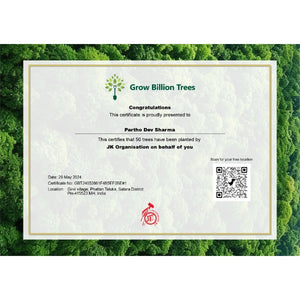
Digital Forest
Forest with 100 Trees planned
Want to plant your tree now?
Plant a Tree @ 299Trees Planted
Sustaining the Environment: JK Paper's Tribute to Speakers Through Agroforest Plantation
JK Paper, one of India's leading paper manufacturers, has taken a significant step in its commitment to sustainability through its tree plantation initiative under the agroforest concept. As part of an event honoring their esteemed delegate speakers, Mr. Partho Dev Sharma and Mr. Johnson John, the company planted trees in a dedicated agroforestry site. This initiative not only promotes environmental sustainability but also enhances the biodiversity of the region by incorporating the principles of agroforestry, which combines trees with agricultural practices for mutual benefit.
The tree plantation activity reflects JK Paper's dedication to creating a greener, more sustainable future, aligning with their values of environmental stewardship. This initiative is a part of their broader commitment to corporate social responsibility, enhancing the green cover and contributing to the health of the ecosystem while providing an opportunity for employees and partners to engage in a meaningful environmental cause. By selecting an agroforest concept, JK Paper emphasizes the importance of integrating agriculture with forestry to create long-term benefits for both the environment and the community.
Tree Plantation Date
29th May 2024
Plantation Location
Sahayadri Van, Girvi, Satara, Maharashtra 415523
Trees Planted
Total Count: 100 Trees
Species Name: Mango, Guava, Chiku, Jackfruit, Coconut
Forest Type: Agroforest
JK Paper's tree plantation initiative in the agroforest concept exemplifies the company's commitment to sustainability and environmental stewardship. By integrating agricultural practices with forestry, the initiative aims to enhance biodiversity and promote sustainable land use. The company planted trees as part of a broader effort to improve the ecosystem, contributing to the regeneration of soil, water conservation, and carbon sequestration. This initiative, which also honored delegates Mr. Partho Dev Sharma and Mr. Johnson John, not only supports JK Paper's dedication to green practices but also fosters a harmonious relationship between agriculture and forestry, benefiting both the environment and local communities for generations to come.
Advantages Of Agroforest
Enhanced Biodiversity
Agroforestry fosters a diverse ecosystem by integrating trees with agricultural crops. This initiative by JK Paper supports the coexistence of multiple plant and animal species, promoting a balanced and thriving habitat. Such biodiversity not only sustains ecosystems but also strengthens resilience to environmental challenges.
Improved Soil Health
Trees planted in agroforests enhance soil fertility by reducing erosion, replenishing nutrients through leaf litter, and improving water retention. JK Paper's initiative contributes to sustainable land use practices, ensuring long-term productivity for agricultural landscapes.Carbon Sequestration
Agroforests are powerful tools for combating climate change. The trees planted through JK Paper’s initiative absorb carbon dioxide, reducing greenhouse gas levels and mitigating global warming. This makes agroforestry a critical solution for a sustainable and greener future.Sustainable Land Use
By combining forestry and agriculture, agroforestry optimizes land use, ensuring dual benefits of crop yield and tree-based resources. JK Paper's approach demonstrates an efficient use of land resources, aligning with modern sustainability goals.Support for Local Communities
Agroforestry benefits local farmers and communities by offering additional income sources from tree products such as fruits, nuts, or timber. JK Paper's initiative helps foster economic development while empowering stakeholders to engage in eco-friendly practices.Climate Resilience
The integration of trees in farmlands reduces the risk of climate extremes by acting as windbreakers and maintaining microclimates. This aspect of JK Paper's initiative supports sustainable agriculture, ensuring food security in the face of changing climate conditions.Water Conservation
Tree roots in agroforests help manage water tables, reduce runoff, and improve groundwater recharge. JK Paper's tree plantation enhances water conservation, supporting sustainable agriculture and surrounding ecosystems.Corporate Environmental Responsibility
Through this agroforestry initiative, JK Paper sets a benchmark in corporate environmental responsibility, showcasing how businesses can positively impact the planet while engaging partners like Avenue Supermarts Ltd. in meaningful sustainability efforts.
Activities During Tree Plantation
During JK Paper’s tree plantation initiative, conducted in the agroforest concept, all plantation activities were carried out by skilled farmers to ensure proper implementation and ecological integration. The farmers meticulously prepared the land, planted saplings in strategic patterns to complement existing agricultural practices, and incorporated species that enhance soil fertility and biodiversity. They also applied sustainable techniques such as mulching and soil conditioning to promote healthy growth. By leveraging the expertise of farmers, JK Paper ensured that the plantation aligns with agroforestry principles, fostering a harmonious balance between agricultural productivity and environmental conservation.
Tree Plantation Purpose
Sustainable Development Goals (SDGs) Achieved Through JK Paper's Agroforest Tree Plantation Initiative
1. SDG 2: Zero Hunger
Agroforestry improves food security by maintaining soil fertility and providing shade and shelter to crops, enhancing agricultural productivity. JK Paper’s approach supports sustainable agriculture, ensuring farmers can achieve higher yields while maintaining ecological balance.
2. SDG 6: Clean Water and Sanitation
Agroforestry improves water conservation by reducing runoff, enhancing groundwater recharge, and maintaining soil moisture. JK Paper’s plantation initiative ensures better water management, contributing to the sustainable use of water resources for both agriculture and forestry.
3. SDG 8: Decent Work and Economic Growth
The involvement of farmers in the plantation activities creates employment opportunities, particularly in rural areas, boosting local economies. This initiative empowers farmers by providing sustainable livelihoods and integrating them into eco-friendly practices, thereby contributing to inclusive economic growth.
4. SDG 11: Sustainable Cities and Communities
By promoting green landscapes and mitigating environmental challenges like soil erosion and deforestation, the initiative contributes to creating sustainable and resilient rural and urban communities. Agroforestry improves environmental quality, supporting a healthier living environment.
5. SDG 12: Responsible Consumption and Production
Agroforestry promotes sustainable land use by combining forestry with agriculture, ensuring efficient resource utilization. JK Paper’s initiative aligns with responsible production practices by creating a sustainable supply of timber and non-timber products without depleting natural resources.
6. SDG 13: Climate Action
JK Paper’s agroforest initiative directly addresses climate change by promoting carbon sequestration. The planted trees absorb significant amounts of CO₂, reducing greenhouse gas levels and mitigating global warming. This proactive approach demonstrates JK Paper’s commitment to urgent climate action while fostering resilience against climate-related risks.
7. SDG 15: Life on Land
By integrating trees into agricultural landscapes, the initiative enhances biodiversity, combats desertification, and supports the restoration of degraded land. The agroforest concept promotes a balanced ecosystem where flora and fauna coexist harmoniously, contributing to the sustainable management of terrestrial ecosystems.
8. SDG 17: Partnerships for the Goals
JK Paper’s partnership with Grow Billion Trees exemplifies the essence of SDG 17: Partnerships for the Goals by fostering collaboration to achieve shared sustainability objectives. This alliance has enabled the successful implementation of tree plantation initiatives in the agroforest concept, combining JK Paper's commitment to sustainability with Grow Billion Trees’ expertise in large-scale environmental projects. Together, they have empowered local communities, engaged farmers in eco-friendly practices, and enhanced biodiversity while contributing to climate resilience. This partnership not only amplifies the impact of each organization’s efforts but also serves as a model of how collective action can drive meaningful progress toward creating a greener and more sustainable future.
ESGs Achieved Through Agroforestry
Environmental (E)
JK Paper’s tree plantation initiative in the agroforest concept significantly contributes to environmental sustainability. By integrating trees into agricultural landscapes, the initiative enhances biodiversity, improves soil health, and promotes carbon sequestration, thereby mitigating climate change. It supports water conservation through better groundwater recharge and reduced runoff, while also addressing land degradation. This approach exemplifies JK Paper’s commitment to sustainable environmental practices, aligning with global efforts to protect and restore ecosystems.
Social (S)
The initiative creates social impact by empowering farmers and local communities. By involving skilled farmers in plantation activities, JK Paper provides them with sustainable livelihood opportunities and knowledge of eco-friendly practices. Additionally, agroforestry improves food security and promotes resilience against climate extremes, benefiting the well-being of communities dependent on agricultural landscapes. This initiative reflects JK Paper’s dedication to fostering social equity and inclusive growth while improving the quality of life in rural areas.
Governance (G)
JK Paper’s partnership with Grow Billion Trees exemplifies robust governance within its ESG framework by fostering transparency, accountability, and ethical collaboration in its tree plantation initiative in the agroforest concept. This partnership ensures that plantation activities are meticulously planned, executed by skilled farmers, and monitored for long-term impact, reflecting JK Paper’s commitment to responsible resource management. The alliance leverages Grow Billion Trees’ expertise in sustainable afforestation and aligns the initiative with global environmental standards. By integrating stakeholder engagement and clearly defined goals, JK Paper ensures that governance principles guide every step of the project, reinforcing trust and demonstrating leadership in sustainability-driven business practices.
Commitment by Grow Billion Trees
Grow Billion Trees is committed to driving sustainable plantation efforts, ensuring every initiative aligns with key environmental objectives and promotes long-term ecological balance. They focus on selecting native tree species that are well-adapted to local ecosystems, ensuring a higher survival rate and stronger environmental impact.
To maintain plant health and longevity, Grow Billion Trees emphasizes continuous maintenance and regular monitoring of the plantations. This approach helps ensure that each tree thrives, contributing effectively to both biodiversity and climate resilience.
Transparency is a core principle in their operations. Clients receive comprehensive reports, including geo-tagging of planted trees, survival rate updates, and ongoing progress reports. This level of openness allows clients to track the direct impact of their contributions, reinforcing trust and accountability.
Through their dedication to sustainable practices, Grow Billion Trees ensures that every plantation project leaves a lasting positive footprint on both the environment and the local communities it serves.
Summary
JK Paper's tree plantation initiative in the agroforest concept highlights the company's commitment to sustainability and environmental responsibility. In this initiative, trees were planted to honor delegate speakers Mr. Partho Dev Sharma and Mr. Johnson John. The agroforest approach combines agricultural practices with forestry, promoting biodiversity, soil health, and carbon sequestration. This effort reflects JK Paper's broader mission to enhance environmental sustainability while fostering a green and harmonious ecosystem, benefiting both the environment and local communities.
Trees for Corporates
Trending
Most Popular
1. Sustainable Agroforestry Practices Sustainable Agroforestry Practices
Sustainable agroforestry is the perfect blend of agriculture and forestry, and it's making waves in the environmental world. With JK Paper’s tree plantation initiative, this concept is taking center stage as farmers plant trees alongside crops, boosting both biodiversity and yields. The trees don’t just look good; they’re champions of soil health, protecting it from erosion and enriching it with nutrients. Plus, they act as natural carbon sinks, absorbing CO2 and fighting climate change. It’s a win-win for the environment and farmers alike. So, if you're wondering what’s the buzz about agroforestry, think of it as nature’s own sustainable system—combining food production with tree planting in a harmony that benefits both nature and economy.
2. Agroforestry Carbon Sequestration Agroforestry Carbon Sequestration
Agroforestry isn’t just about trees and crops living side by side; it’s about saving the planet—one tree at a time. Through JK Paper’s initiative, carbon sequestration becomes a reality. Trees planted in agroforestry systems absorb carbon dioxide from the atmosphere, storing it in their roots, leaves, and soil. This process helps fight climate change by reducing the greenhouse gases that are warming our planet. Think of each tree as a tiny carbon vacuum cleaner, making the air cleaner and helping offset emissions. JK Paper’s efforts show how agroforestry can help mitigate the environmental effects of industrial activity, with the added bonus of improving soil and water retention.
3. Tree Plantation for Soil Health Tree Plantation for Soil Health
If you thought trees only helped by looking pretty, think again! When planted in agroforestry systems, trees are the ultimate soil health superheroes. JK Paper’s initiative is a prime example of how tree plantation directly benefits the soil. Tree roots bind the soil together, preventing erosion, while the decomposing leaves add organic matter that nourishes the earth. This process improves soil structure, increases fertility, and even helps with water retention. In other words, trees don’t just sit there; they work hard to maintain healthy, productive land that can support future crops. Who knew tree planting could be so good for the soil?
4. Agroforest Biodiversity Benefits Agroforest Biodiversity Benefits
In the world of environmental sustainability, biodiversity is a big deal, and agroforests are at the forefront of supporting it. JK Paper’s agroforest initiative helps enhance biodiversity by planting trees that create a natural habitat for a variety of species. These trees provide shelter and food for animals, insects, and birds, promoting a thriving ecosystem. Unlike monoculture farming, agroforestry encourages diverse plant life, which leads to a healthier, more resilient environment. Trees in these systems offer a balanced ecosystem, benefiting not just the land but the wildlife around it. So, in essence, JK Paper is planting more than just trees—they’re planting a whole ecosystem of life.
5. Agroforestry and Water Conservation Agroforestry and Water Conservation
Agroforestry is a water-saving superhero, and it’s part of JK Paper’s commitment to sustainability. Trees play a crucial role in managing water on the land, improving water infiltration and reducing runoff. Their roots anchor the soil, preventing it from being washed away during heavy rains, while their canopy slows down water evaporation from the soil. In regions where water scarcity is an issue, agroforestry helps ensure that crops and trees alike have a steady supply of moisture. JK Paper’s tree plantation initiative is therefore not just about greenery—it’s about making sure that future generations have enough water to thrive.
6. Agroforestry in Rural Development Agroforestry in Rural Development
Agroforestry isn’t just a solution for the environment; it’s also a game-changer for rural development. JK Paper’s initiative exemplifies how tree planting can directly impact rural economies. By integrating trees into agricultural practices, farmers can diversify their income streams—whether it’s from timber, fruit, or other tree-based products. Additionally, the agroforestry system helps stabilize land, making it more productive over time. As farmers and local communities adopt agroforestry practices, they can boost their income while improving the land's health and sustainability. So, every tree planted through this initiative is a step toward empowering rural communities and boosting their economic resilience.
7. Agroforestry and Climate Resilience Agroforestry and Climate Resilience
Agroforestry plays a pivotal role in building climate resilience, and JK Paper’s tree plantation initiative is making it happen. By integrating trees with crops, agroforestry systems help mitigate the impacts of extreme weather events like floods, droughts, and storms. Trees act as natural windbreaks, reduce heat stress for crops, and provide shade, which can help maintain a balanced climate in the local environment. With climate change causing more unpredictable weather patterns, agroforestry offers a solution that prepares ecosystems to withstand and recover from such events. JK Paper’s commitment to agroforestry, therefore, is not just about planting trees—it’s about creating a climate-resilient future for farming communities.
8. Agroforestry as a Green Business Strategy Agroforestry as a Green Business Strategy
Agroforestry isn’t just for environmentalists—it’s also a smart green business strategy, and JK Paper’s tree plantation initiative is a shining example. By embracing agroforestry, businesses can align themselves with global sustainability goals, reduce their carbon footprint, and promote responsible land use. JK Paper’s partnership with Avenue Supermarts Ltd. showcases how businesses can engage in eco-friendly practices while achieving operational benefits, such as improving the quality of agricultural land and reducing costs in the long run. Agroforestry is an investment in both the planet and a company’s future, proving that green initiatives can also be a sound business strategy.
FAQ
What is the agroforest concept?
The agroforest concept integrates trees into agricultural landscapes, allowing farmers to grow crops alongside trees. This sustainable practice improves biodiversity, enhances soil fertility, and supports carbon sequestration. JK Paper’s tree plantation initiative follows this concept, contributing to environmental sustainability while benefiting local farming communities through increased crop yields and improved land productivity.
How does JK Paper contribute to sustainability through tree plantation?
JK Paper actively contributes to sustainability by promoting tree plantation in the agroforest concept. This approach helps combat climate change by reducing carbon emissions, improving soil health, and conserving water. Through its initiatives, JK Paper ensures long-term ecological benefits while supporting the livelihoods of farmers and local communities.
What benefits does agroforestry bring to farmers?
Agroforestry offers multiple benefits to farmers, including increased biodiversity, improved soil health, and diversified income sources. By planting trees alongside crops, farmers can benefit from additional products like timber, fruits, or medicinal plants. This practice also reduces the risk of crop failure due to weather extremes, making agriculture more resilient in the long term.
How does JK Paper’s partnership with Grow Billion Trees help in tree plantation?
JK Paper’s partnership with Grow Billion Trees helps amplify the impact of its tree plantation initiatives. Together, they work to implement large-scale agroforestry projects, ensuring the successful planting of trees and promoting sustainable land management. This collaboration also enhances the overall environmental impact, benefiting both farmers and the ecosystem.
Why is tree plantation important for the environment?
Tree plantation plays a crucial role in enhancing biodiversity, improving air quality, and combating climate change. Trees act as natural carbon sinks, absorbing CO2 from the atmosphere and storing it in their biomass. By planting trees, JK Paper helps mitigate the effects of global warming, contributing to a healthier planet for future generations.
What role do trees play in improving soil health?
Trees play a vital role in enhancing soil health. Their roots prevent erosion, improve soil structure, and help in nutrient cycling. The organic matter from fallen leaves enriches the soil, making it more fertile for crops. Through agroforestry, JK Paper’s tree plantation initiative boosts soil health, ensuring long-term agricultural productivity.
How does agroforestry impact water conservation?
Agroforestry systems improve water retention in the soil by reducing runoff and enhancing groundwater recharge. Trees absorb excess water during heavy rains, preventing soil erosion, while their roots help retain moisture, which benefits crops during dry periods. Through its agroforestry initiative, JK Paper supports water conservation, ensuring sustainable land use.
What are the economic benefits of agroforestry for local communities?
Agroforestry provides local communities with diverse income opportunities by incorporating tree products such as timber, fruits, and medicinal plants. This diversification reduces the financial risk for farmers, as they are not reliant on a single crop. JK Paper’s tree plantation initiative supports economic resilience in rural communities through sustainable agroforestry practices.
How does JK Paper ensure the success of its tree plantation projects?
JK Paper ensures the success of its tree plantation projects by carefully selecting suitable tree species, working with experienced farmers, and using sustainable practices. The company provides continuous support, training, and monitoring to ensure that the trees thrive. This approach helps to maximize the long-term environmental and social benefits of the plantation.
Can agroforestry help in mitigating climate change?
Yes, agroforestry plays a significant role in mitigating climate change. Trees absorb carbon dioxide from the atmosphere, helping to reduce greenhouse gas concentrations. Agroforestry systems also promote soil carbon storage, enhancing overall climate resilience. By implementing agroforestry practices, JK Paper helps reduce its carbon footprint and contributes to global efforts to combat climate change.
- Choosing a selection results in a full page refresh.
- Opens in a new window.


